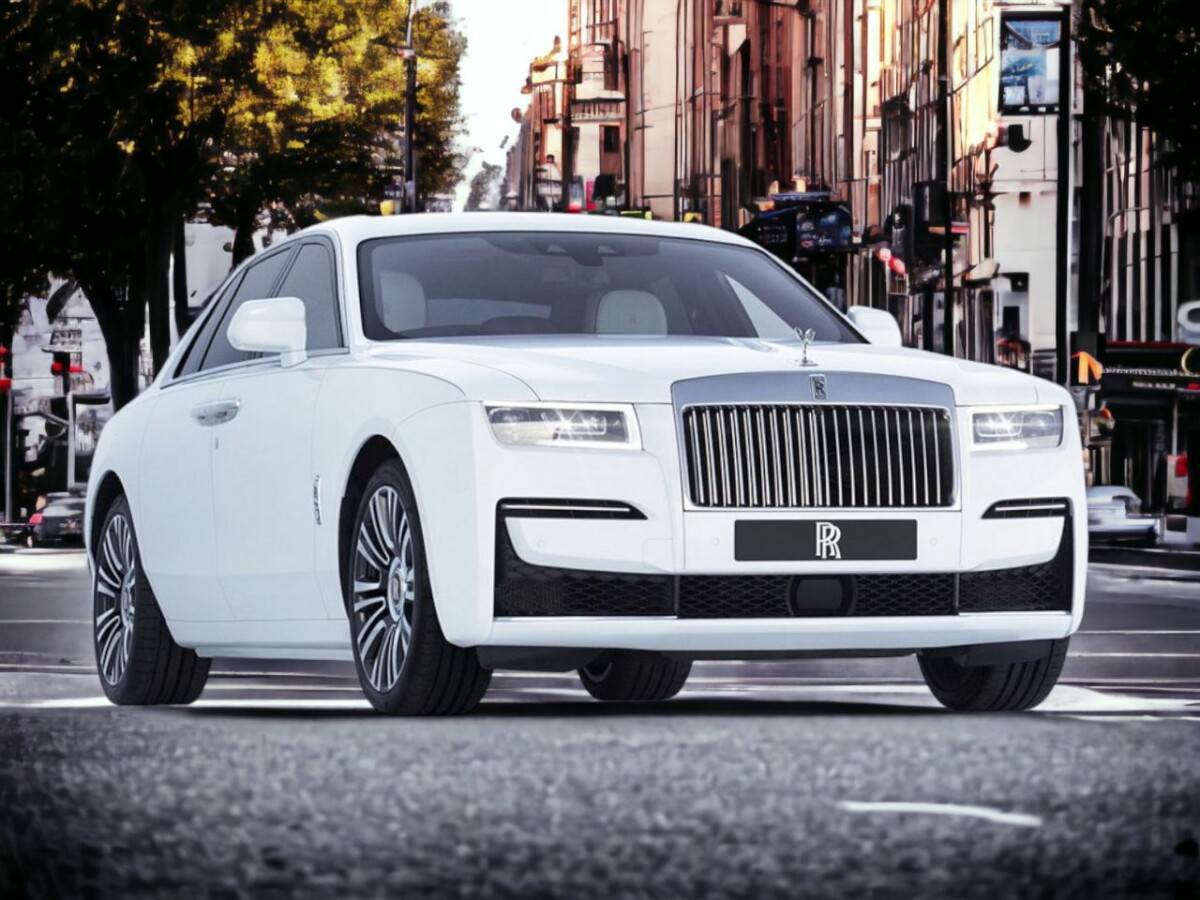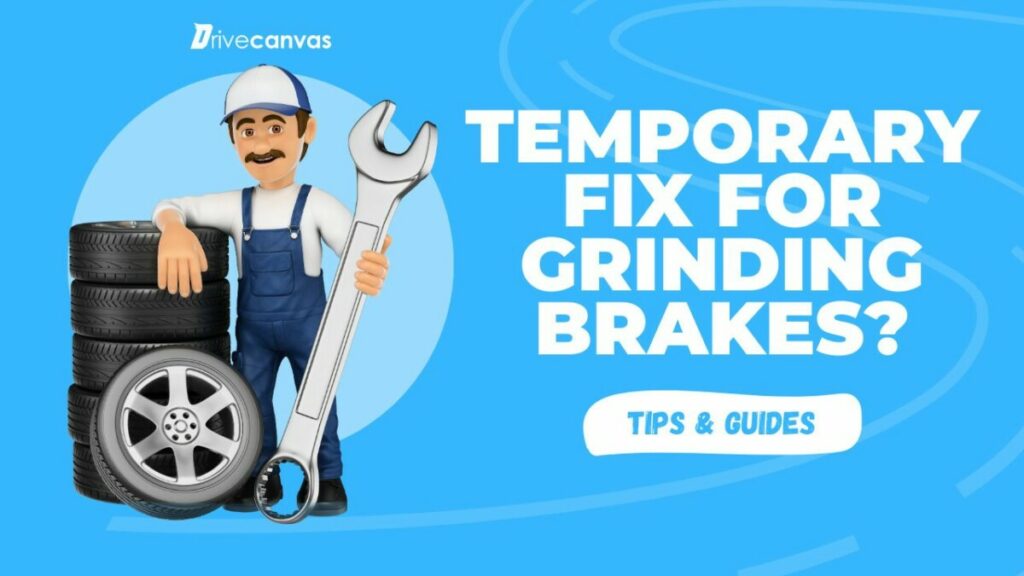On your way back home, that nightmare of a grinding brake sound rings in your ears. Easy now, don’t freak out! This guide has got your back, serving up some speedy solutions to get you back on the road until you have time for a proper brake job.
Just a heads up, these are quick fixes, not long-term solutions. Let’s cut to the chase and figure out what’s causing that awful grinding noise and how you can put a temporary lid on it.
Let’s face it, this brake grinding issue isn’t going to fix itself!
Quick Fixes for Grinding Brakes – Do They Exist?
Grinding brakes are no light matter and shouldn’t be ignored or temporarily fixed. They indicate extreme wear and should be dealt with promptly to prevent dangerous driving situations.
So, you’re curious about what’s causing those creepy grinding sounds every time you hit the brakes, huh? Well, let’s break it down.
The prime culprits are usually your brake pads that have seen better days, and in some not-so-lucky cases, damaged rotors. You see, brake pad materials – be it semi-metallic or ceramic – they’re not invincible. Over time, they take a beating from all the heat and friction they’re exposed to. The result? They wear down and that shiny metal backing plate of the pad gets a little too friendly with the rotor. Bam! That’s where the grinding noise is coming from.
Now, how do you know your brake pads are throwing in the towel? Look for tell-tale signs like deep grooves or scoring on the rotors, brakes that just don’t have the same oomph anymore, and a brake pedal that’s got a pulse of its own.
And hey, don’t just shrug these signs off. Keep a regular check on your pads, replace them when they start looking a little worn out, and you’ll be saving not just the rotors but also keeping your braking system in top-notch condition. So, keep your eyes and ears peeled – your ride will thank you for it!
The Dangers of Driving With Grinding Brakes

If you’re turning a blind eye to the red flags and still driving with grinding brakes, you’re basically dancing with danger. This isn’t just a risk to your own safety, but it can also wreak havoc on your precious ride.
Here’s the lowdown on the risks you’re running:
- Your stopping power gets diminished, cranking up your chances of getting into a crash
- There’s a chance your brakes might just give up on you, which is a total nightmare scenario when you’re at high speeds
- Your brake system could suffer major damage, and fixing that isn’t going to be cheap
- Your brake pads will wear down more quickly, slashing their lifespan
- Your rotors could also be damaged, and replacing those isn’t a walk in the park
Being in tune with the signs of brake pad wear and understanding how to keep them in tip-top shape can save you from these hazards. Don’t put off dealing with grinding brakes – it’s literally a matter of life and death.
Temporary Solutions for Grinding Brakes

While you’re definitely looking for a long-term solution, there are a few quick fixes to get some peace from those annoying grinding sounds your brakes are making.
The first thing you could try is swapping out your brake pads. It’s a pretty straightforward task you can do yourself, and it could offer a temporary break from that awful noise. All you need are some new brake pads. Just make sure to follow the instructions on the box when you’re installing them.
And hey, while you’re at it, why not try some brake pad lubricant? Slather some on the back of the pads and slider pins, it could help reduce the friction that’s causing all that grinding.
But remember, these are just band-aid solutions. If that horrid grinding sound just won’t quit, it could mean there’s a bigger problem, like worn rotors. In that case, it’s probably best to call in the professionals. Safety first, right?
Importance of Lubricating Brake Components

Why wouldn’t you want to give your brakes some TLC with a good ol’ lube job? It’s a no-brainer, really. The benefits are pretty rad and way too good to ignore. Let’s break it down:
- First off, it cuts down on friction, which means your brakes live a longer, happier life.
- It’s a boss at keeping corrosion at bay, even when the weather goes all Game of Thrones on you.
- Your brakes will run smoother than a hot knife through butter, enhancing their performance big time.
- It’s the ultimate noise killer, putting an end to all those annoying grinding and squeaking sounds.
- And the cherry on top? You save big bucks on potentially expensive repairs or replacements.
So, how do you go about lubricating those brake components? It’s pretty straightforward. First, get rid of any old grease or rust. Then, whip out some top-notch brake lube and slather it onto all the moving parts. Focus on the back of the brake pads, caliper pins, and all the other bits and bobs that move when you hit the brakes. Regular maintenance and lubrication are your secret weapons for a safe, efficient braking system.
Factors Affecting the Severity of Grinding Brakes and Necessary Repairs

If you’ve ever had to deal with the headache of grinding brakes, you know it’s not a one-size-fits-all kind of problem. The severity of the issue and the repairs needed can vary massively depending on a few key factors. For instance, the specifics of your ride – its make, model, and how many birthdays it’s celebrated – can all have an impact. Even the type of brakes you’re rocking can make a difference.
Then there’s the warranty angle. If you’re a heavy breaker or you’ve racked up more miles than a long-haul trucker, it could take a toll on your coverage, and in turn, exacerbate the problem.
So what should you be on the lookout for? Well, if your brakes are screaming like a banshee every time you stop, or if your car’s stopping power is on par with a tortoise, you might’ve worn-out brake pads. A vibrating brake pedal is another telltale sign.
If these symptoms sound familiar, they could be pointing to some serious wear and tear, and that might mean your ride needs a bit more TLC than just a quick fix. It’s super important to get a grip on these factors. It’s not just about solving the problem at hand, but also about making sure you’re not setting yourself up for more headaches down the road.
Concluding Thoughts: Your Ride Deserves Some TLC

Embracing that temporary fix isn’t just about grinding brakes, my friends. Being in sync with all facets of your ride’s vibes is of prime importance! A perfect example that you gotta know about is the most reliable Land Rover. I mean, let’s face it, being informed about the most reliable models, knowing the ins and outs of your vehicle, can definitely save you from predicaments that involve you, your ride, and those terrible screeching sounds!
Now, in the pain-where-it-hurts-the-most scenario of realising those precious tires of yours have been messed with, trust me, that’s a bummer for any roadster out there. So, learning how to tell if your tire was slashed is indeed an essential trick to keep up your sleeve. Seriously, nothing better than nipping the trouble in the bud right?
And since we’re brewing up this conversation, I have to admit, thumbs up to the ones driving that Hyundai Elantra! You may wonder why though? Well, ever thought about how many miles a Hyundai Elantra can last? Spoiler alert: it’s impressive! That’s credibility and quality wrapped in one product. Who wouldn’t dig it?
The bottom line here folks, is that as road warriors, being in tune with all aspects of your vehicle’s health is something that literally ‘drives’ the longevity of your ride. Brake woes are, of course, a biggie, but being proactive in maintaining your ride’s tire health and knowing the reliability of components like those of a Land Rover or a Hyundai Elantra, can really make the difference between a smooth sailing drive and a bumpy ride.

